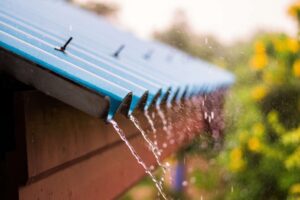
Understanding water neutrality
In an era of increasing concern about water scarcity and environmental sustainability, the concept of water neutrality has gained prominence. But what exactly does it mean, and how can individuals work towards achieving it?
In this Blog post, we'll delve into the concept of water neutrality, exploring its significance and providing practical guidance on reducing water consumption to minimise your water footprint.
Water neutrality is a concept aimed at balancing the amount of water consumed, with the amount of water returned to the environment, through conservation and restoration efforts. Essentially, it involves striving to ensure that the water we use is replenished through sustainable practices. This can achieve a state of equilibrium where our water consumption does not contribute to overall water depletion.
Reducing Water Usage:
- Install water-saving fixtures: Upgrade to water-efficient fixtures such as low-flow toilets, aerated taps, and water-saving showerheads. These simple changes can significantly reduce household water consumption, without compromising on convenience or comfort.
- Fix leaks promptly: Regularly inspect your plumbing system for leaks and repair them promptly. Even minor leaks can waste a significant amount of water over time, so addressing them quickly is essential for reducing your water footprint.
- Shorten shower time: Encourage shorter showers and consider installing a timer or using a shower playlist to help keep track of time. Cutting down on shower time can lead to substantial water savings over the course of a year.
- Collect rainwater: Install a rainwater harvesting system to collect rainwater for outdoor use, such as watering plants or washing your car. This reduces reliance on treated water sources and helps conserve freshwater resources.
- Choose efficient appliances: When purchasing new appliances, choose models with high energy and water efficiency ratings. This includes washing machines, dishwashers and water heaters.
- Choose drought-tolerant plants: When landscaping your garden, choose drought-tolerant plants that require minimal watering once established. Native species are well-adapted to local conditions and often thrive with less water.
- Mulch garden beds: Apply a layer of organic mulch to garden beds to retain soil moisture and suppress weed growth. This reduces the need for frequent watering and helps conserve water during dry periods.
- Water wisely: Water outdoor plants during the early morning or late afternoon to minimise evaporation. Use a watering can or drip irrigation system to deliver water directly to the roots, rather than spraying foliage.
- Use greywater: Consider re-using greywater from sources such as showers, baths and washing machines to irrigate outdoor plants. You could install a greywater recycling system to capture and treat greywater for this purpose.
- Install a smart irrigation system: Invest in a smart irrigation system that uses weather data and soil moisture sensors to optimise watering schedules. This ensures that plants receive just the right amount of water, reducing waste and promoting healthy growth.
- Raise awareness: Educate your community about the importance of water conservation and encourage sustainable water use practices. Organise workshops, events, or educational campaigns to share information and inspire action.
- Promote water-efficient land use planning: Support land use planning practices that prioritise water efficiency, such as xeriscaping, green infrastructure and sustainable urban drainage systems. Encourage local authorities to incorporate water conservation measures into planning and development policies.
Achieving water neutrality requires a concerted effort from individuals, communities, businesses, and governments.
By adopting water-saving practices in our daily lives, promoting water conservation initiatives in our communities, and advocating for policy change, we can work towards achieving a state of equilibrium where our water consumption is balanced by sustainable water management practices.
Let's all strive to make every drop count and move closer to a future where water resources are preserved for generations to come.
Carl Dodd, Property Revolutions Ltd.

